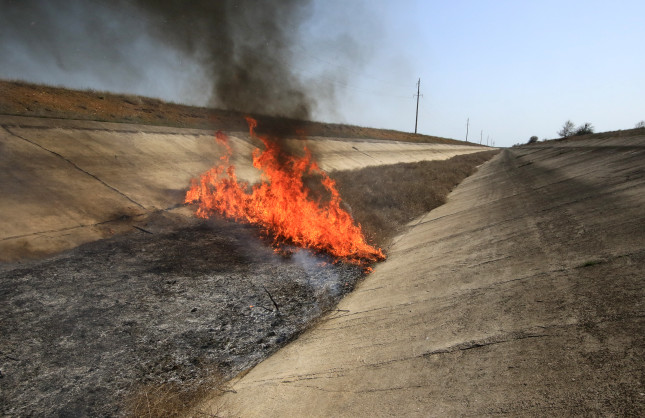-
Hydropolitics in the Russian – Ukrainian Conflict
›
It’s telling that one of the first actions that Russian forces took in their invasion of Ukraine was to blow up a dam on the North Crimean Canal (NCC), allowing water to flow back into Crimea. The current war being waged by Russia in Ukraine has its origins in fractured and contested political history, but there are also key natural resource security questions which often go overlooked. While there are established debates about the extent to which natural resources contribute to conflict, the current conflagration exemplifies a rare use of water as a means of direct leverage in a military standoff. Regardless of the outcome of the conflict, the tensions between Russia and Ukraine over the NCC illustrate the need to consider the role of natural resources—and access to them—in broader diplomatic efforts.
-
The Ambivalent Security Agenda in Copenhagen
›To communicate a sense of urgency, the security paradigm is being used to push for self-sufficiency in energy, and hence “national security,” at COP-15. Such a connection, if configured with carbon-free energy sources, could provide a win-win outcome for many.
This argument has been embraced both by the left and the right of the political spectrum in the United States. But compelling as it may be politically, there is a discomforting insularity and isolationism embedded in this approach, as emphasized by the delegations from some countries that export fuels (e.g., OPEC members, emergent oil and gas economies, and uranium exporters such as Namibia and Niger).
The Canadian delegation, which was targeted by activists with a “fossil of the day” award, used the security argument to show how it could send relatively “conflict-free” fuels to the United States by developing its oil, uranium, and bituminous tar sands.
Australia played a similar security card behind the scenes. The former Environment Minister Robert Hill also served as defense minister and is now head of Australia’s Carbon Trust–connections which he suggested were very valuable in an onsite interview with journalist Giles Parkinson.
Nuclear energy was prominently discussed as a solution by numerous delegations. At a side event organized by the Danish Federation of Industries, Energy Secretary and Nobel physicist Steven Chu indicated that his biggest concern about nuclear energy was not the waste problem but rather, the potential dangers to national security from the proliferation of radioactive materials.
The other security connection that environmentalists like to make–but is empirically more tenuous–concerns the increased pressures on existing strife in resource-scarce communities potentially inflicted by climate change. I attended a presentation by an OECD research team that empirically considered the impact of climate change on the security of the vulnerable states of the African Sahel. While generally rejecting the direct linkage between climate change and the threat of violent conflict, the OECD study, launched with UK Rear Admiral Neil Morisetti, identified three hotspots where existing resource scarcity and population pressure could be exacerbated by climate change, especially agropastoralist communities, who are highly sensitive to any climatic fluctuations.
So far, the rather meandering encounter with the security agenda I’ve witnessed here in Copenhagen could greatly benefit from further integrative work such as that offered by the Wilson Center.
Saleem H. Ali is associate professor of environmental planning at the University of Vermont and the author most recently of Treasures of the Earth: Need, Greed and a Sustainable Future.
Showing posts by Saleem Ali.




